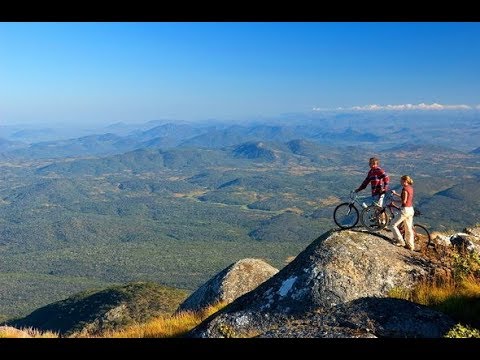
In the realm of African safaris and wildlife encounters, the usual suspects often dominate the conversation—Kruger, Serengeti, Maasai Mara. However, hidden in the rolling hills of northern Malawi is a less trodden but equally mesmerizing gem: Nyika National Park. With its surreal landscapes and unique biodiversity, Nyika presents an alternative for travelers seeking solace away from crowded tourist circuits and an intimate encounter with nature.
#### A Unique Ecosystem
Spread over 3,134 square kilometers, Nyika National Park is situated on the broad back of the Nyika Plateau, which towers above sea level at around 2,500 meters. This elevation grants the park a climate that starkly contrasts with the typical African heat—cool temperatures prevail year-round, fostering a landscape more akin to European highlands than African savannahs.
Nyika’s environment is characterized by rolling grasslands interspersed with patches of evergreen forest and craggy outcrops. During the rainy season (from November to April), these montane grasslands burst into life with wildflowers blooming en masse, creating a kaleidoscope of colors that is a spectacular sight to behold.
#### Flora and Fauna
The park’s distinctive ecological conditions support a variety of wildlife uniquely adapted to its cool climes. Unlike many other African parks where big cats or elephants are typically the drawcards, Nyika is famed for its large herds of eland as well as other antelope species such as roan, bushbuck, and reedbuck. The plateau is also one of the best places in Africa to observe leopards in their natural habitat due to its sprawling open landscapes.
Birdwatching here provides an unparalleled delight as well; over 400 bird species have been recorded in Nyika making it a paradise for ornithologists and casual bird lovers alike. The park shelters an array of endemic species alongside migratory birds that visit seasonally.
For botany enthusiasts, Nyika’s flora includes numerous orchid species that bloom during the wet season—adding yet another layer to its diverse biological tapestry.
#### Adventures and Activities
Nyika National Park offers numerous activities that allow visitors to immerse themselves deeply into this serene wilderness. Guided nature walks and Land Rover safaris are among the most popular ways to explore the vast landscapes and encounter wildlife intimately. For those who favor adventure, mountain biking through designated trails provides breathtaking views combined with thrilling descents.
Also notable are horseback safaris—a rarer treat in terms of safari experiences—that offer another vantage point from which to enjoy Nyika’s scenery unhindered by engine noise. This mode of travel not only draws you closer into harmony with nature but also increases chances of approaching shy wildlife typically skittish around motorized vehicles.
#### Cultural Experiences
Visiting Nyika also presents opportunities for cultural interaction predominantly through visits to nearby local communities. These excursions provide insights into rural Malawian life and allow travelers to understand more about traditional practices and challenges faced by these communities surrounding conservation areas.
#### Conservation Efforts
Nyika National Park doubles as a critical conservation area managed through collaborative efforts between Malawian authorities and various non-governmental organizations aiming at preserving its unique biodiversity while promoting sustainable tourism practices.
### Concluding Remarks
With its off-the-beaten-path allure, profound natural beauty, diverse activities available all year round (thanks largely due to its cool weather), plus robust conservation strategies ensuring sustainable interaction between humans and nature; Nyika National Park stands out as a must-visit destination in Africa for those looking beyond conventional safari routes—a place where one can genuinely disconnect from modern chaos and reconnect with Earth’s primal beauty.
